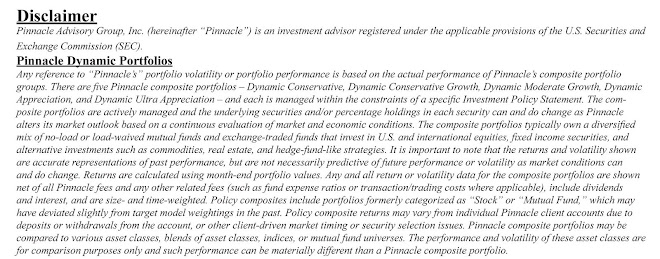I just read the February letter from Tony Boeckh, author of The Great Reflation, and one of our highly regarded independent analysts. The title of his letter, “Are Equities Too Expensive for a New Secular Bull Market?” is provocative for those who believe we are still mired in a secular bear market. Secular bears look at long-term valuation measures and conclude that the stock market is too expensive for a long-term, multiple year bull market to occur. In our work, we look at several valuation measures, but the most conservative in terms of earnings is to use Robert Shiller’s methodology of normalizing, or averaging, trailing earnings over the past ten years. Averaging the earnings over 10 years smoothes the earnings number so that it isn’t distorted by cyclical peaks and troughs as the economy moves through the business cycle. The current 10-year average earnings are about $55 so the market’s P/E ratio at current prices (1321 S&P 500 close on 2/22/11) is 24x. History tells us there has never been a secular bull market beginning from such a high P/E ratio.
Boeckh, however, offers some other methods of looking at long term market valuations. He suggests using a long-term earnings trend line to estimate normalize P/E’s instead of using the 10-year average. Using the logarithmic trend of 60-years of earnings gets us to $66 of earnings, which means that the current market P/E is 20x. The long run average P/E is 17, so the market is expensive, but not frighteningly so. He then further adjusts earnings to show earnings yields (the reciprocal of the P/E ratio) versus BAA bond yields. Corporate earnings look very attractive in today’s very low interest rate environment. Finally he adjusts the P/E ratio for the amount of cash on today’s corporate balance sheets. Value investors would normally make an adjustment in the price component of the ratio since cash is considered to be easily returned to investors. The net result of his analysis is that the 2009 market lows will turn out to be THE market lows and that we are in the early stages of a new secular bull market.
What does that mean to us? Well…very little, actually. Our own valuation work shows the market to be fairly valued. While it is interesting to consider secular market cycles, our work is focused on identifying shorter market cycles within the secular trend. There are many cyclical bull and bear markets within a secular bear. This cycle is no different, with a bear market from 2000 – 2002, a bull market from 2002 – 2007, a bear market from 2007 – 2009, and now a bull market from March of 2009 to present. Most assuredly, this bull market will be followed by a new bear market. The question is when? Boeckh doesn’t believe this new secular bull will give investors the same high returns that secular bull markets have delivered to investors in the past. If this is the beginning of the next secular bull, then I couldn’t agree more. In my mind, actively managing portfolio risk will be a priority for years to come.

